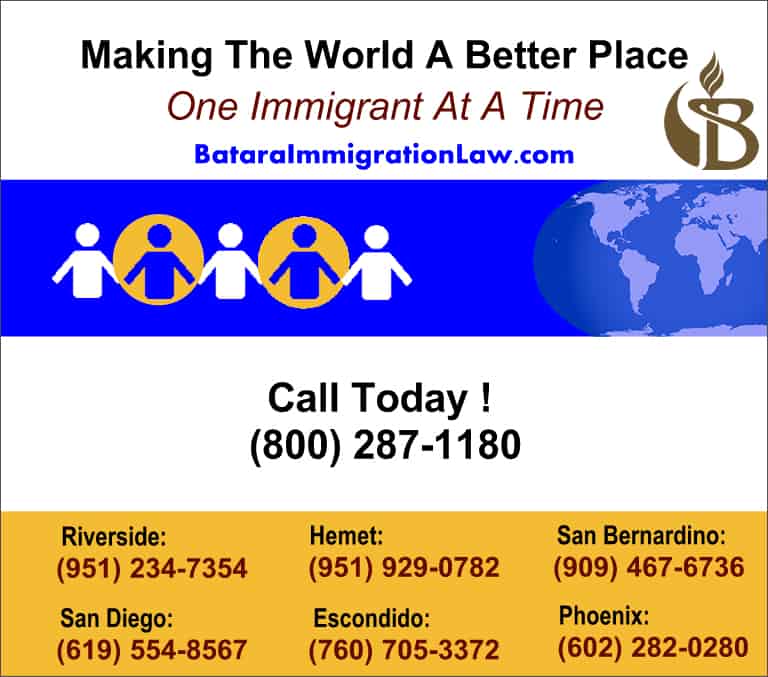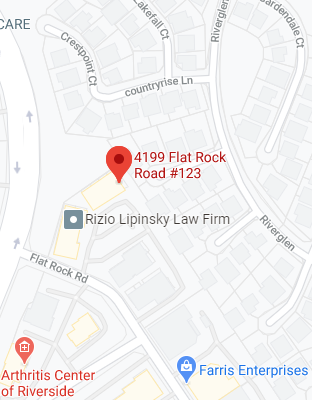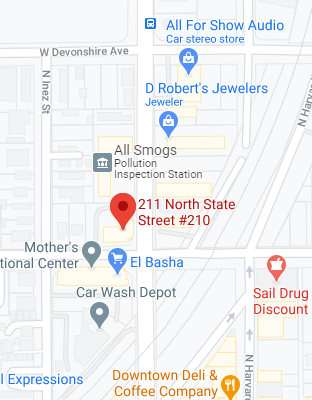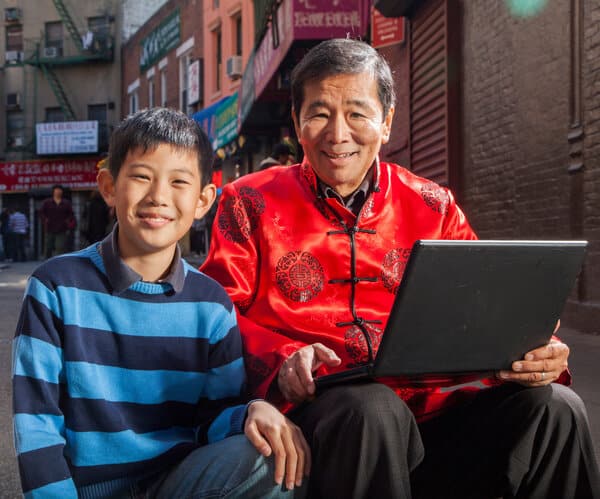
“Is immigration causing cultural ghettos in cities?”
That was a question asked by Su-Lu Tan, a news reporter for the Australian Financial Review.
She added, “And should we be worried?”
In a broader sense, she was addressing assimilation, and by implication, segregation, in the U.S.
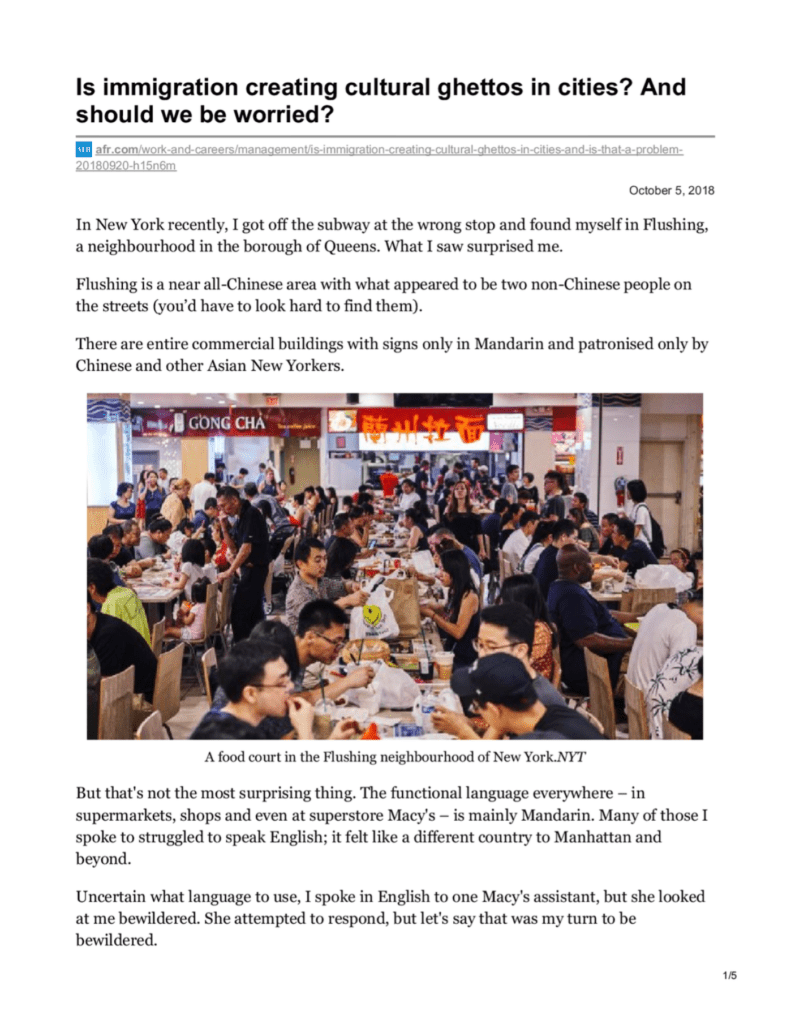
The author, Su-Lin Tan, expressed surprise upon entering a part of the city where nearly all the building names, commercial signs, billboard ads, and the like were written in Mandarin.
Apparently dismayed, she noted almost all the shoppers were either of Chinese or Asian descent. Many struggled with English.
Frankly, I’m surprised that she was surprised.
Not because the reporter is of Chinese descent.
But, rather, because these types of neighborhoods have existed for as long as I have been alive.
(Of course, being an Australian-based reporter, her reaction is somewhat understandable.)
I long ago accepted them as part of the American tapestry – a multi-cultural tapestry built on varying degrees of human survival, adaptation, and innovation.
I grew up in such an area. On Logan Avenue. In Southeast San Diego.
Signs advertising services, grocery items, and day-to-day essentials in Spanish were commonplace.
A False Parallelism: Immigrant Neighborhoods And Cultural Ghettos
In her article, Ms. Tan also asked, if the growth of cultural ghettos is a deliberate attempt to create camps of difference?
Good question.
Cultural enclaves are natural.
When immigrants first arrive in the country, whether they speak English fluently or not – they feel more at home in the company of fellow countrymen.
For the majority, their early ventures into American society are made easier by learning from those who came before them.
Thus, they seek out relatives, friends of their relatives, and friends of their friends back home, for insights and guidance as part of their early adaptation.
Over time, new friendships are forged, new romances are born. Quite often, this happens within their cultural enclave.
Some families continue to live in such neighborhoods, even after they have become Americanized enough to move out.
This means such areas should not be viewed as an aberration, or as an unhealthy development. Instead, they should be seen as a byproduct of our multicultural society.
They need not be portrayed as a blemish on our country, but as a positive indicator of an increasingly diverse populace.
Local businesses spring up. Local leaders emerge.
Maintaining ties to the language and traditions of their former homes is both a healthy reminder of their past and positive link to the potential of an American welcome mat.
In an increasingly global economy, as more and more immigrants enter the U.S., from a wider range of nations, such areas will increase.
For many who originally settle in such areas, their new neighborhoods, sometimes poor and blighted, are not seen in a gloomy light.
These neighborhoods are seen as a new home.
A place of promise and hope.
The labeling of these neighborhoods comes afterwards.
As part and parcel of a devious political, economic, pyschological, and social dance.
Are Cultural Ghettos A Deliberate Attempt To Divide America?
The non-critical journalistic labeling of these areas as “ghettos” is part of this nefarious dance.
In conflating the issue of immigrant neighborhoods with the issue of ghettos, Ms. Tan portrays the latter as an automatic outgrowth of the former.
Neighborhoods that arise from a pattern of natural selection are depicted as the seed that transforms such areas into semi-poverty camps, largely undesirable to the general public.
- Neighborhoods of persons who are socially deemed “second-class” citizens.
- Neighborhoods that are economically limited by deliberate discriminatory practices.
- Neighborhoods from which access to upward mobility is politically and educationally restricted.
After all, the term “ghettos” is used, most commonly, to describe a less-then-desirable neighborhood.
The label pejoratively conditions many folks who live, both inside and outside such neighborhoods, to buy into counter-productive story lines of those who inhabit within them.
Self-doubt and social distaste become norms.
Segregation and isolation, in the long run, become a way of life, a fait accompli.
In other words, the public perception of immigrant neighborhoods as ghettos reflect a massive failure of our multicultural society.
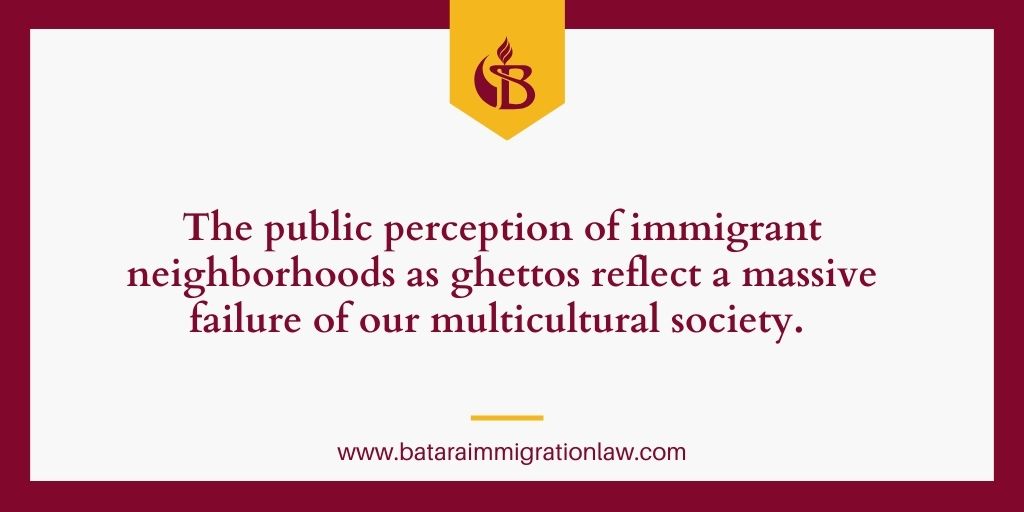
And careless journalism plays a major role in shaping there perceptions,
Before closing, allow me to directly address Ms. Tan’s initial questions.
First, immigration, alone, does not create cultural ghettos. It creates cultural enclaves, cultural neighborhoods.
Second, should we be worried about such areas?
No, except to the extent that the susequent conditioning causes such enclaves to be perceived as ghettos is a deliberate attempt to divide Americans on racial and ethnic lines.
The true danger to our multicultural society is this – the unwillingness to accept as true partners those who arrive from distant shores.
Recommended Reading:
Ready to take a serious and honest look at the strengths and weaknesses of your immigration case? Let’s get started with a personalized strategy and planning session . . .
Here's How It Works
1
Call Our Office
Immigration law doesn’t have to be confusing. You don’t have to live in fear of being deported and separated from your family. A comprehensive 30-minute Strategy And Planning Session will take the stress out of not knowing your options first-hand.
2
Meet With Carlos
Every case is unique. We refuse to take cookie-cutter approaches to your case. After we discuss the ins and outs of your immigration and family situation, Carlos will outline your chances for success and how to overcome obstacles standing in your way.
3
No Pressure - No False
Promises
Hiring a lawyer is a big investment, and we will not pressure you to hire us or push you into a plan you don’t understand. If we cannot help you, we will tell you. We will not take your case, unless we believe we can make a difference for you and your family.
